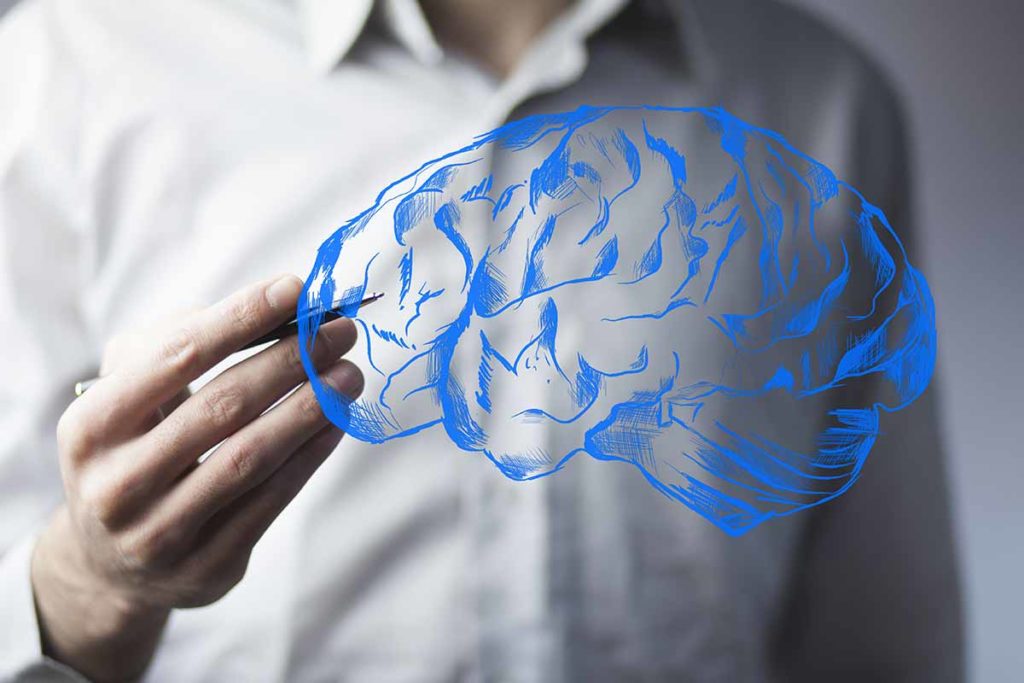Although there are many causes of addiction, one of the most powerful relates to a drug’s interactions with the brain’s reward center. Neurotransmitters in the brain send messages to the body, directly impacting how you think and feel. Over time, your brain may rely on substances to feel good and to avoid withdrawal symptoms, and this can result in addiction.
TruHealing Cincinnati understands the interactions of drugs with the brain. We offer addiction treatment therapies like individual therapy in the Mahoning Valley area of Ohio. If you or a loved one is suffering from addiction, call us at 888-89-SOBER to learn more about our substance abuse treatment programs and addiction treatment therapies.
How the Brain’s Reward Center Is the Top Cause of Addiction
Four parts of the brain’s reward center play a role in causing addiction: the cerebral cortex, nucleus accumbens, amygdala, and hippocampus. Dopamine is a neurotransmitter that connects the four parts of the brain’s reward center when addiction develops. One of the reasons some drugs are more addictive than others is because of the way they cause dopamine to surge in the brain. Addictive drugs release two to ten times more dopamine than healthy activities such as:
- Exercise
- Sleep
- Sun exposure
- Meditation
Eventually, the brain receptors become overwhelmed, so the brain produces less dopamine and eliminates dopamine receptors. With fewer dopamine receptors, a person will require drugs to induce positive feelings.
What Causes Addiction?
Addiction is a complicated, chronic mental health disorder, and brain chemistry is just part of what causes addiction. Other causes of addiction include genetics, environment, past experiences, and mental health.
How Your Genes Affect Your Risk of Addiction
Studies show that addiction is moderately to highly hereditary. So, someone with a relative struggling with addiction has an increased risk of developing an addiction. Interestingly, the influence of genetics on addiction is different from drug to drug. The drugs with the highest heritability factor are cocaine, opiates, and alcohol, followed by sedatives, marijuana, and hallucinogens.
How Your Environment Influences Addiction
Environmental causes of addiction are primarily related to your home environment and your peer group.
Peer pressure is especially prevalent during adolescence. The desire for teens to fit in can cause them to make poor choices, especially since the brain is not fully developed until a person reaches their mid-twenties.
Poor parental supervision may occur during the teenage years because the teen is gaining more independence. Parental drug use and criminal activity also play a role in addiction. Children with parents that use drugs and are involved in criminal activity are at a higher risk of abusing substances. The presence of drugs at home allows children to experiment with drugs, which can lead to addiction.
Trauma and Addiction: The Impact of Past Experiences
Trauma and addiction are closely related. One of the most common past experiences that influences drug addiction is trauma. Common childhood traumas include physical abuse, sexual abuse, verbal abuse, and physical or emotional neglect. These traumas often lead to post-traumatic stress disorder (PTSD). A center that offers a dual diagnosis program may be most beneficial to overcoming addiction and treating PTSD.
Addiction and Co-Occurring Mental Health Disorders
Mental health conditions can be a contributor to developing an addiction. Being aware of the connection between the two can help prevent addiction by motivating you to get help before mental health conditions lead to substance abuse.
Address the Underlying Causes of Addiction at TruHealing Cincinnati
At TruHealing Cincinnati, we have master’s-level therapists trained in substance abuse, mental health, and trauma. We use an evidence-based approach combined with a holistic mindset to heal the whole person rather than simply treat the symptoms. We aim to address the underlying causes of addiction to give you the best chance of a full and lasting recovery. If you think you or a loved one may need addiction treatment, please call us at 888-89-SOBER or use our convenient online form. Our full continuum of care can put you on the road to recovery.

